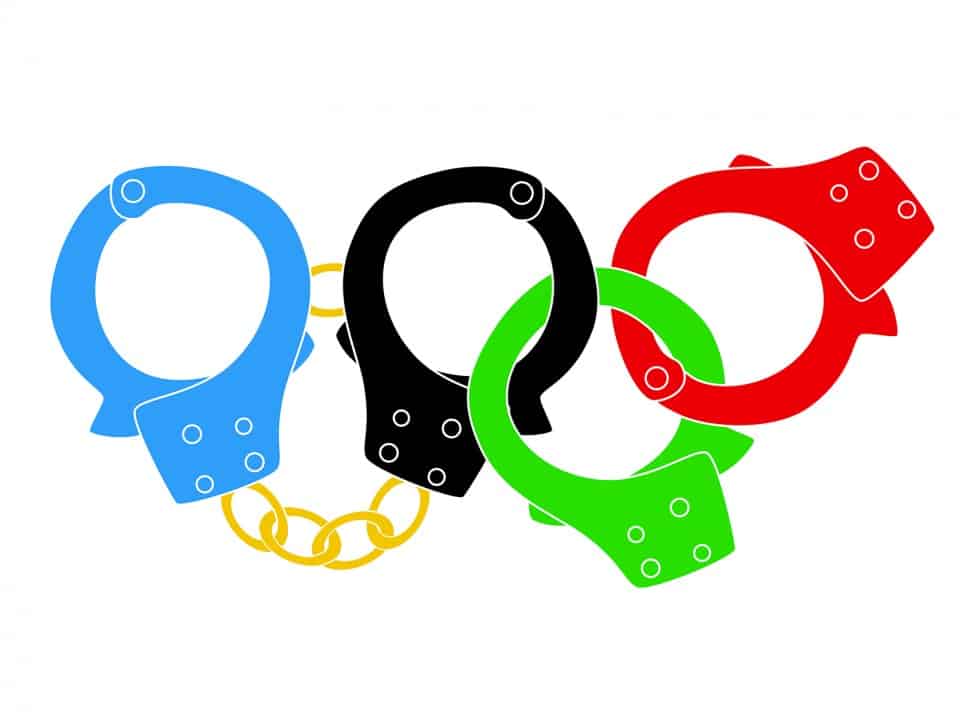It’s a story that all of us are familiar with: an athlete from humble beginnings takes her sport by storm with exceptional performances. Society is inspired by her athletic prowess and marketability, and raises the athlete to the level of wealth and status befitting a celebrity, and before long, endorsement offers start pouring in. Athletes who reach this level of critical acclaim become larger than the sport that made them famous. It seems that just as the athlete reaches the height of their career, comes the inevitable scandal.
No matter the scandal, the sports community, fans, and even those who don’t understand or follow sports are always shocked. The general reaction from the community is surprise and disbelief that someone we have elevated so high could stoop so low. We watch collectively as the athlete is carried through the streets, humiliated, punished, and sentenced to life as an outcast from both the sporting world and society as a whole. Sports scandals have many faces: Lance Armstrong, Patrick Kane, Ray Rice, Tiger Woods, Manti Te’o, and most recently, Greg Hardy. How is it that the media puts athletes on such a high pedestal, only to discover these large shortcomings in character? According to Professor Margaret MacNeill, an associate professor in the department of Kinesiology and Physical Education, as well as a faculty member at the Dalla Lana School of Public Health, scandal has as much to do with society as it does with the athletes themselves.
“Historically [athletes] have been such positive icons in our lives that sometimes we put too much of a positive aura around them so we assume they can do no wrong,” she says.
Athletes are symbols to the public in many ways; they are the pivotal picture of the human form, they epitomize what each and every one of us can do when we dedicate ourselves to a goal, and more often than not, athletes are getting paid to do something they love -— a sentiment that many of us cannot relate with. But if athletes, even with all the wealth and success our devotion affords them, can fall victim to the same temptations and destructive behavior we can, what hope is there for mere mortals like us?
MacNeill notes that a lot of this can be boiled down to education. Specifically a lack of education pertaining to their rights as athletes as well as their basic human rights.
“Every athlete should have basic rights to the freedom of expression,” argues MacNeill,“…yet many of them sign away bits and pieces of that right in their athlete agreements… [athletes] are incredibly confident people but there is ignorance about other issues.”
It’s incredibly easy to forget in the flash of mass outrage that the athletes we are angry at are people — often in their 20’s and 30’s — who have had very limited experience in the real world. Devoting themselves night and day to their sport can leave these athletes ill-equipped to handle contract negotiations, or to manage a following of millions on social media, who are reading and scrutinizing their every post.
“…[athletes] have to be careful what they do say, whether it’s something appropriate or not, but if they get shamed this ‘cyber lynch mobbing’ that can go on is a really hard thing to deal with,” said MacNeill. She added that as much as the onus is on the athlete to make smart decisions about what they do and don’t post, fans can be responsible for the perpetuation and misconstruction of the message as well. “You’ve got both athletes and fans that are now part of the production of the messages of the media and what gets presented and re-represented and framed out there… we do have to be careful of what kind of policing, watch-dogging, calling out, [and] lynch mobbing that can occur.”


